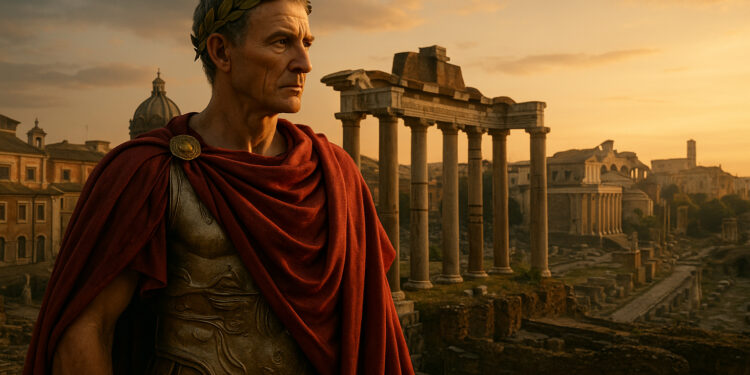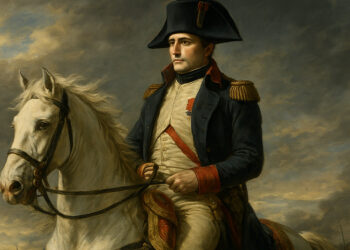Few figures in history embody ambition and power like Julius Caesar. His rise from a shrewd politician to the ruler of Rome reshaped the ancient world and laid the foundation for one of history’s greatest empires. Caesar’s ambition was both his strength and his downfall—driving him to achieve the unimaginable while igniting the events that ended the Roman Republic.
A Visionary in a Time of Chaos
When Caesar entered politics, Rome was drowning in corruption and civil unrest. The Republic, though powerful, was fractured by greed and inequality. Caesar saw an opportunity not just to lead, but to transform. He combined charisma, intellect, and daring strategy to win the loyalty of both the military and the common people. His ability to navigate politics and warfare made him a force unlike any other.
The General Who Conquered Gaul
Caesar’s military brilliance came to full light during his conquest of Gaul (modern-day France). Over nearly a decade, he expanded Rome’s borders, defeated powerful tribes, and amassed immense wealth. His campaigns were chronicled in Commentarii de Bello Gallico, written not only as military reports but as propaganda to secure his reputation. His victories made him a hero to the people—and a threat to the Senate.
Crossing the Rubicon: The Point of No Return
In 49 BCE, defying orders to disband his army, Caesar crossed the Rubicon River with his legions, declaring, “The die is cast.” That moment changed history forever. His decision to march on Rome plunged the Republic into civil war, ending centuries of democratic rule. Yet to Caesar, it was a necessary act to restore order and fulfill his destiny.
Dictator and Reformer
As ruler, Caesar implemented sweeping reforms—restructuring the calendar, expanding citizenship, and reforming taxation. His vision extended beyond power; he sought to unify and modernize Rome. But his growing authority alarmed senators who feared he aimed to make himself king—a title Romans despised.
Assassination and Immortality
On the Ides of March, 44 BCE, Caesar was assassinated by those who once called him ally. Ironically, his death sealed the fate of the Republic he had sought to reform. His adopted heir, Octavian (later Augustus), would establish the Roman Empire, fulfilling Caesar’s dream of a unified Rome under imperial rule.
Conclusion
Julius Caesar’s ambition built an empire but cost him his life. He was a visionary who defied tradition, a leader whose name became synonymous with power itself. His legacy endures not just in history books, but in every empire that has ever sought to balance ambition with order.












